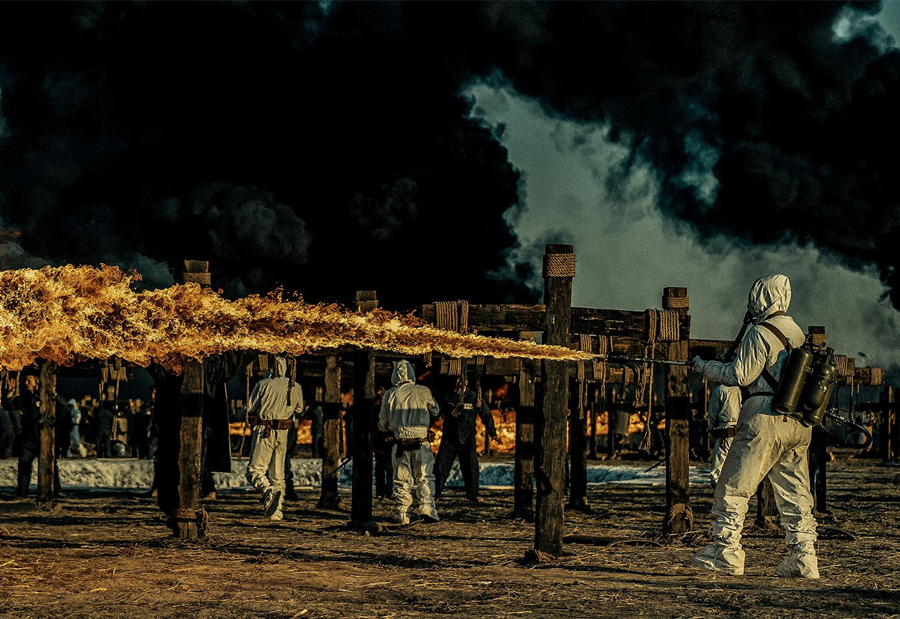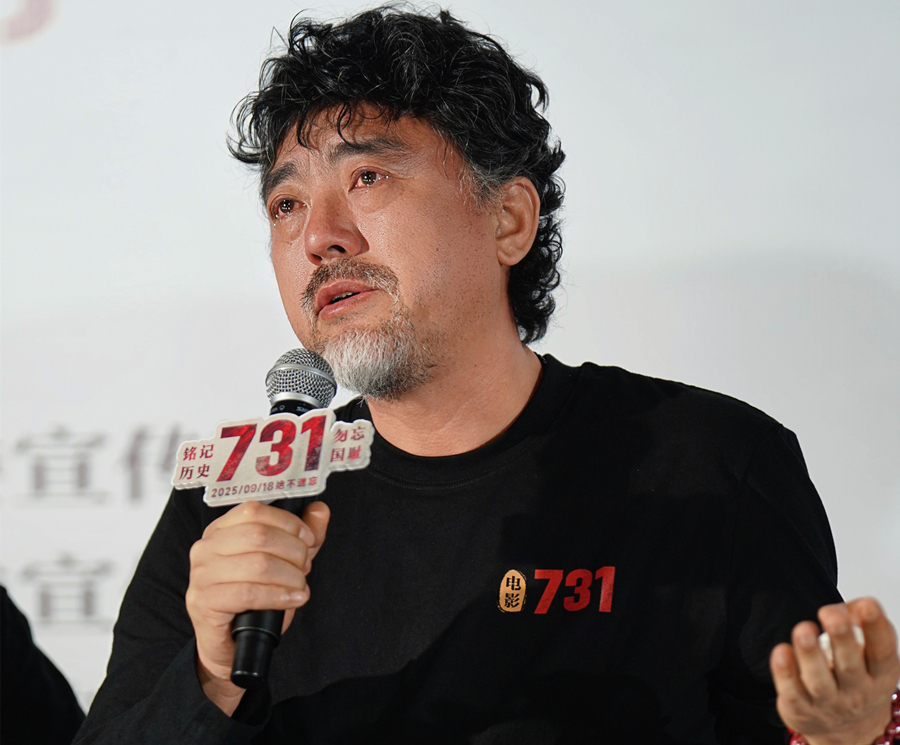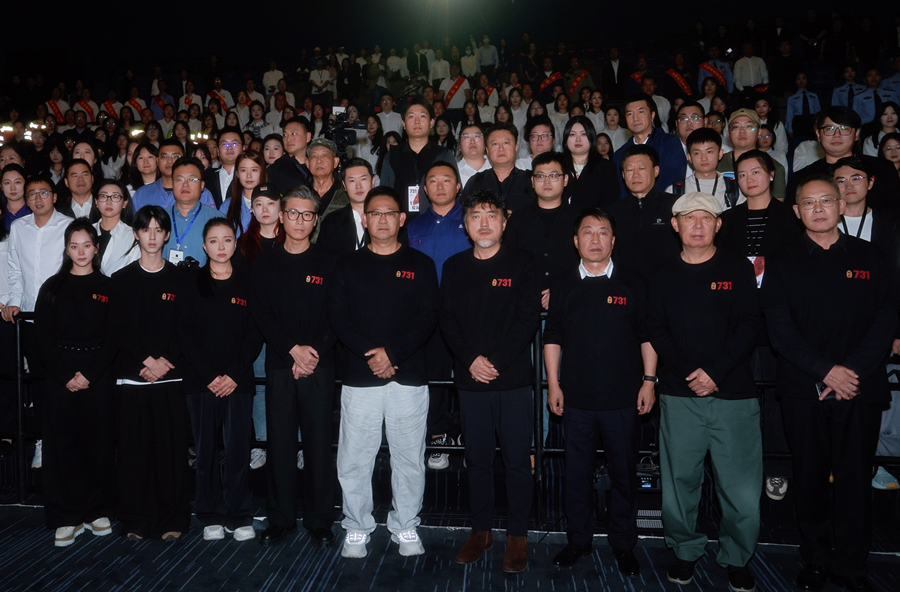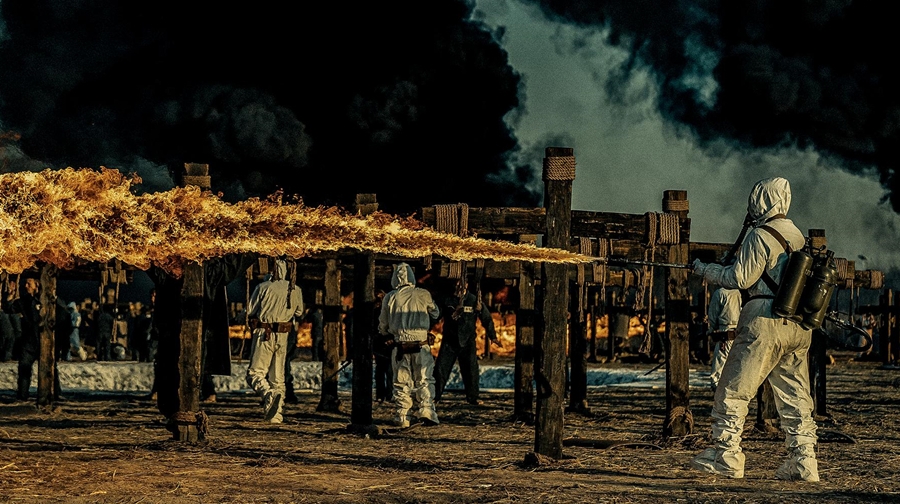A new film depicting the atrocities committed by Japan's notorious Unit 731 during World War II opened in China on Sept. 18, immediately setting box office records while serving as both a remembrance of past suffering and a call to safeguard peace.

A still from "Evil Unbound." [Photo courtesy of Changchun Film Group]
Titled "731" domestically and "Evil Unbound" internationally, the film premiered to commemorate the 94th anniversary of the September 18 Incident, which marked the start of China's war of resistance against Japanese aggression. The release also coincides with the 80th anniversary of victory in the Chinese People's War of Resistance against Japanese Aggression and the World Anti-Fascist War.
The film follows vendor Wang Yongzhang and other prisoners deceived into Unit 731's "special prison" with promises of freedom for participating in medical research. Instead, they endured brutal experiments including frostbite tests, gas poisoning and vivisection. Wang leads a failed escape attempt.
To ensure accuracy, the team spent nearly a decade developing the script, drawing on over a million words of archival documents from domestic and international sources.
"The real history is far more brutal than what the film can depict," said Jin Chengmin, curator of the Exhibition Hall of Evidence of Crimes Committed by Unit 731 of the Japanese Imperial Army, at the film's premiere in Harbin on Sept. 17. He noted that Japan systematically covered up the atrocities after the war, and hopes the film will draw attention to this dark chapter.
Jin, who consulted on the film, recalled a Japanese expert telling him, "If even you have forgotten, how can we remember?" The remark motivated his 27-year quest for justice, including 30 evidence-gathering trips to Japan.
Director Zhao Linshan shed tears at the Harbin premiere, saying, "This premiere had to take place in this city. It is a tribute to all those who perished." He added, "I hope the imagery serves as historical evidence, and the cinema becomes a court of justice. Everyone must act as a judge."

Director Zhao Linshan speaks in tears on stage at the premiere of "Evil Unbound" in Harbin, northeast China's Heilongjiang province, Sept. 17, 2025. [Photo courtesy of Changchun Film Group]
"I want to tell everyone that this is not just a film, it is historical evidence. Each of us is a witness," Zhao said in Beijing at the second premiere event on Sept. 18.
Unit 731, a top-secret biological and chemical warfare research base in Pingfang district of Harbin, the capital of northeast China's Heilongjiang Province, served as the nerve center for Japanese biological warfare in China and Southeast Asia during WWII. Between 1940 and 1945, Unit 731 used at least 3,000 people in its human experiments, and Japan's biological weapons killed more than 300,000 people in China.
Unit 731's experiments were designed to culminate in "Operation Cherry Blossoms at Night," a biological warfare plot targeting cities in Southern California in retaliation for the U.S. bombing of Japan. The operation, portrayed in the film, was scheduled for Sept. 22, 1945, but was canceled after Japan's Aug. 15 surrender.
The plan originated with Unit 731 director Shiro Ishii. Despite documented atrocities, Ishii received immunity from prosecution in exchange for sharing research with U.S. biological defense programs. This decision continues to provoke outrage in China.
The film, anticipated for its portrayal of war crimes committed by Japanese invaders, has drawn extensive public interest. On Maoyan and Taopiaopiao, two major ticketing platforms, over 7 million moviegoers clicked "want to see," the highest number in Chinese cinema history.

The cast and crew of "Evil Unbound" at the premiere in Harbin, northeast China's Heilongjiang province, Sept. 17, 2025. [Photo courtesy of Changchun Film Group]
The film's presale revenue surpassed 130 million yuan ($18 million), and it grossed a staggering 345 million yuan on its opening day, a Thursday, when box office numbers are typically lower due to weekday work schedules. Over the weekend, its total gross rapidly exceeded 1.23 billion yuan within just four days. Saturday marked another milestone, with the film raking in 417 million yuan in a single day.
The movie also broke Chinese cinema's single-day screening record with 288,000 showings on Sept. 18. The number climbed even higher over the weekend, peaking at 305,000 screenings on Sept. 20.
Audiences took to social media to express their tears, sorrow, anger and yearning for peace after watching the film. Zhao emphasized that "exposure does not represent hatred; exposure is for awakening."
Many theaters across China scheduled first screenings at 9:18 a.m., echoing the September 18 Incident date. The film also opened in Australia and New Zealand on Sept. 18, with North American releases to follow.
Zhao hopes for eventual screenings in Japan. "Let this film gather the power of peace and carry it out into the world," he said.


 Share:
Share: 




 京公网安备 11010802027341号
京公网安备 11010802027341号